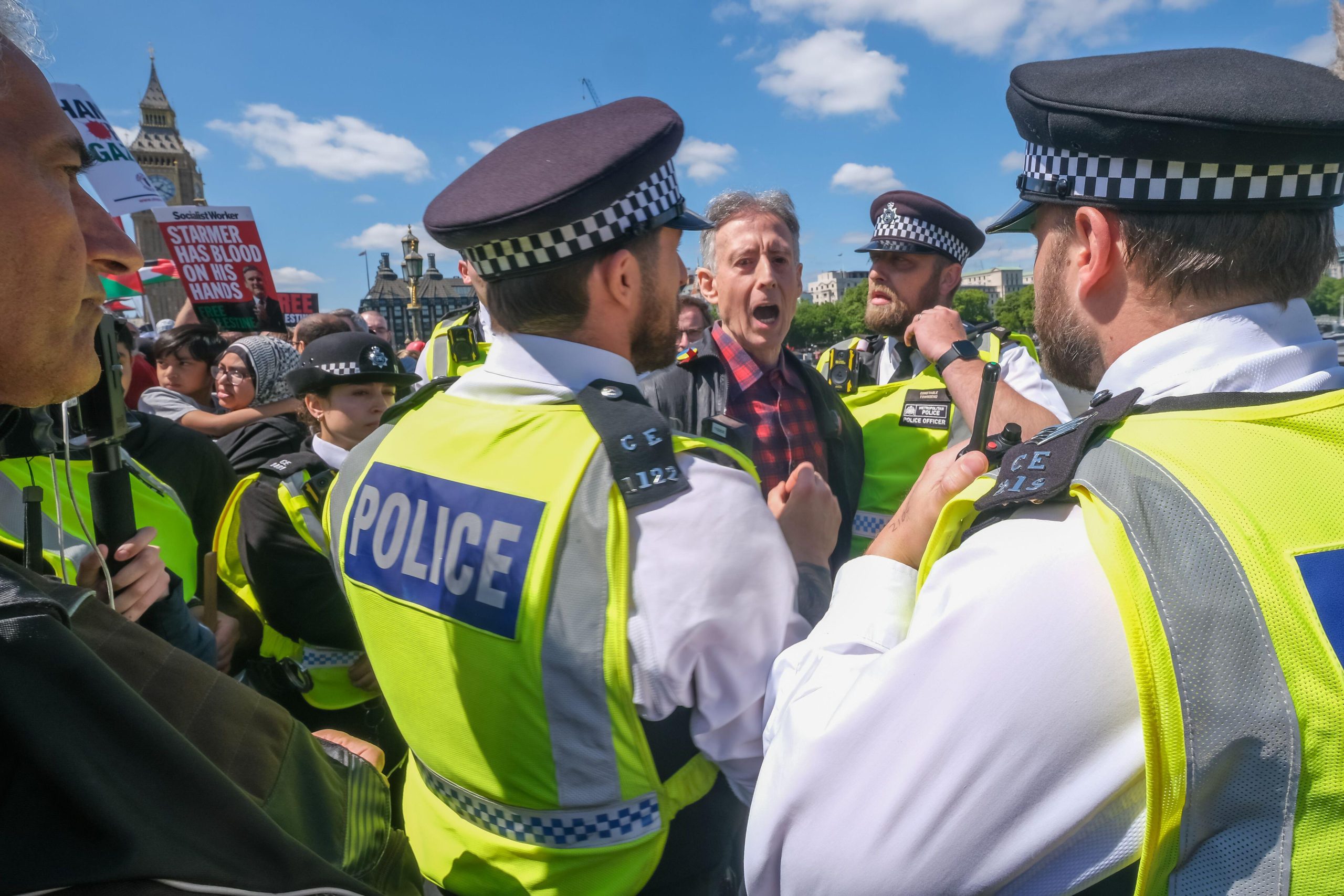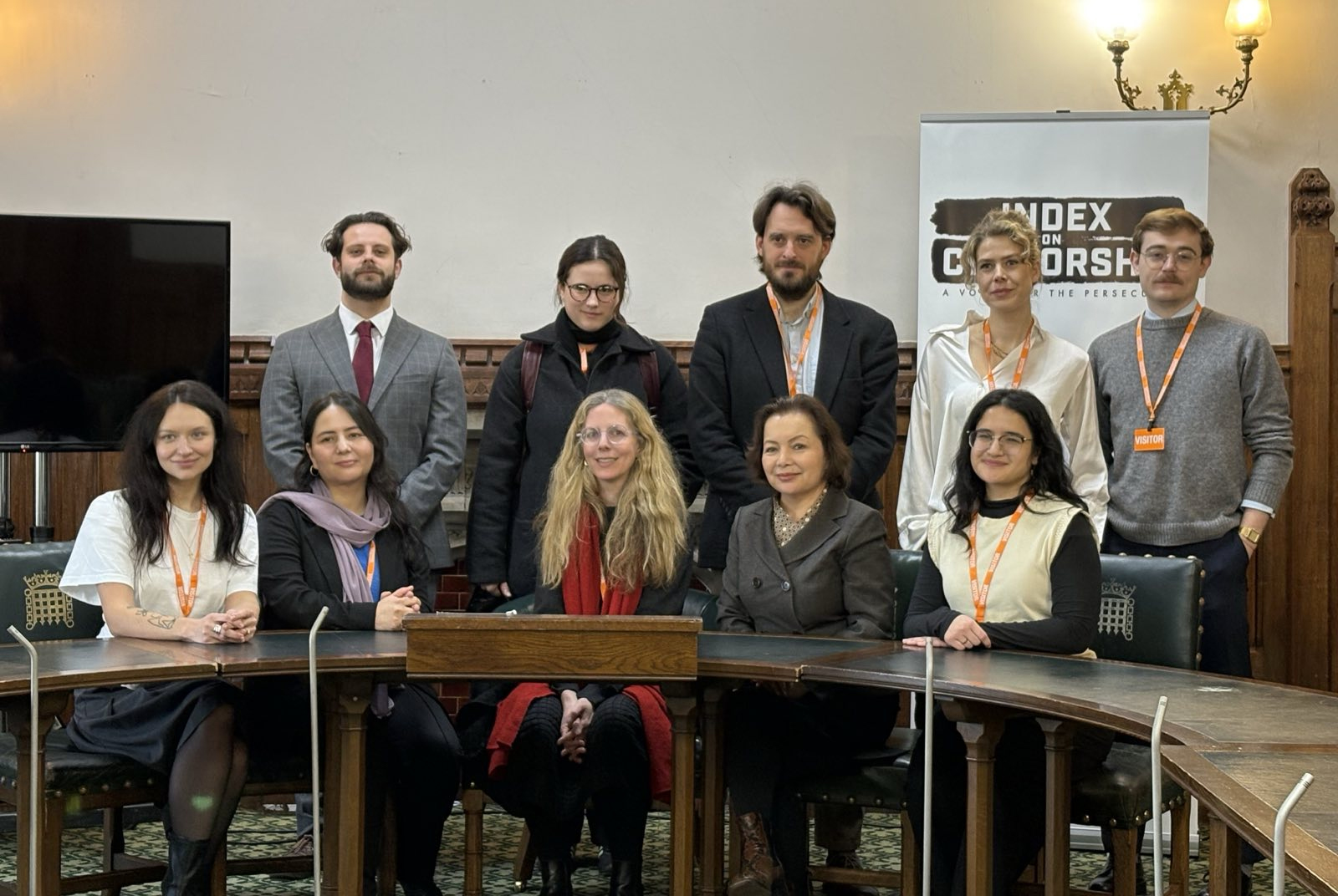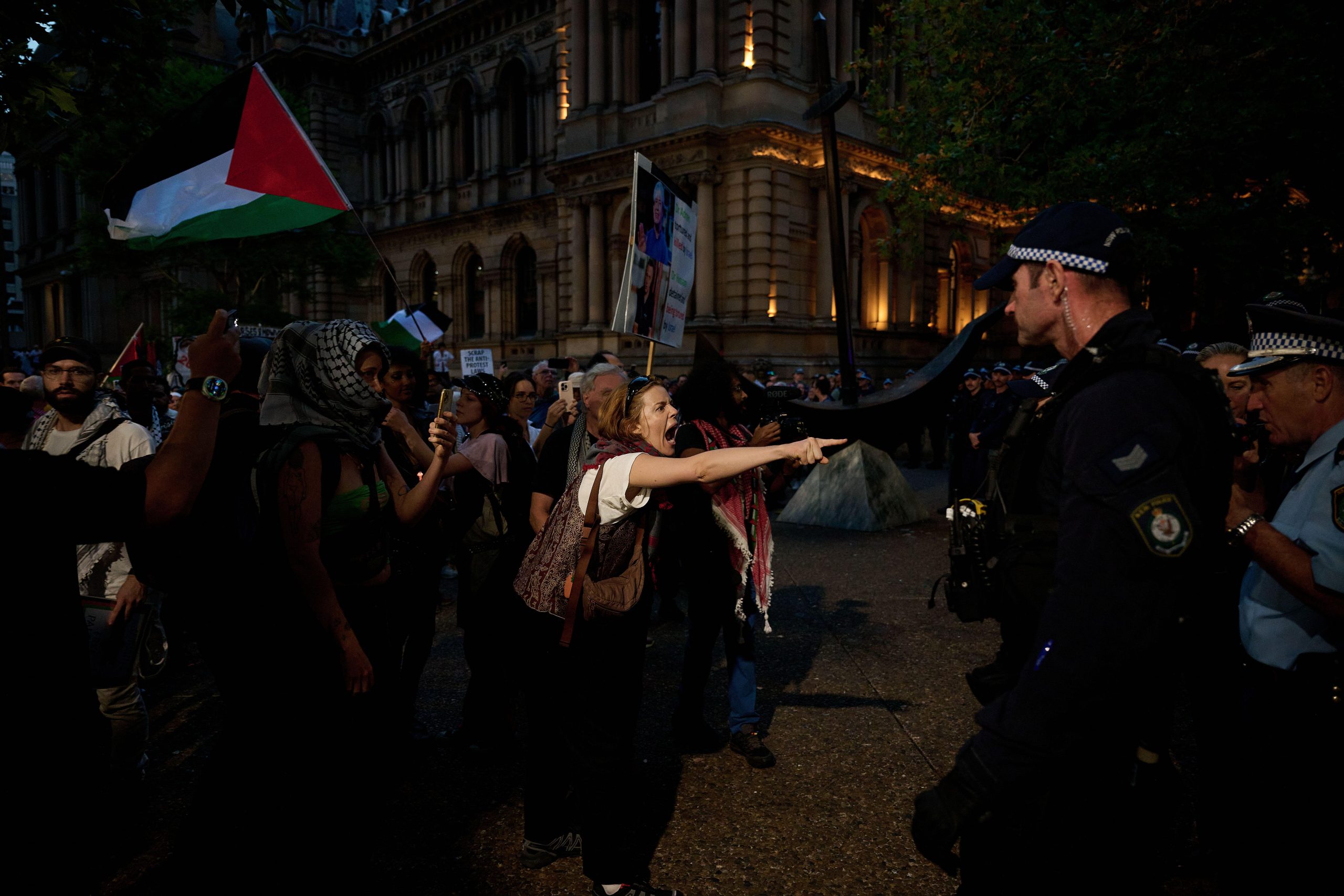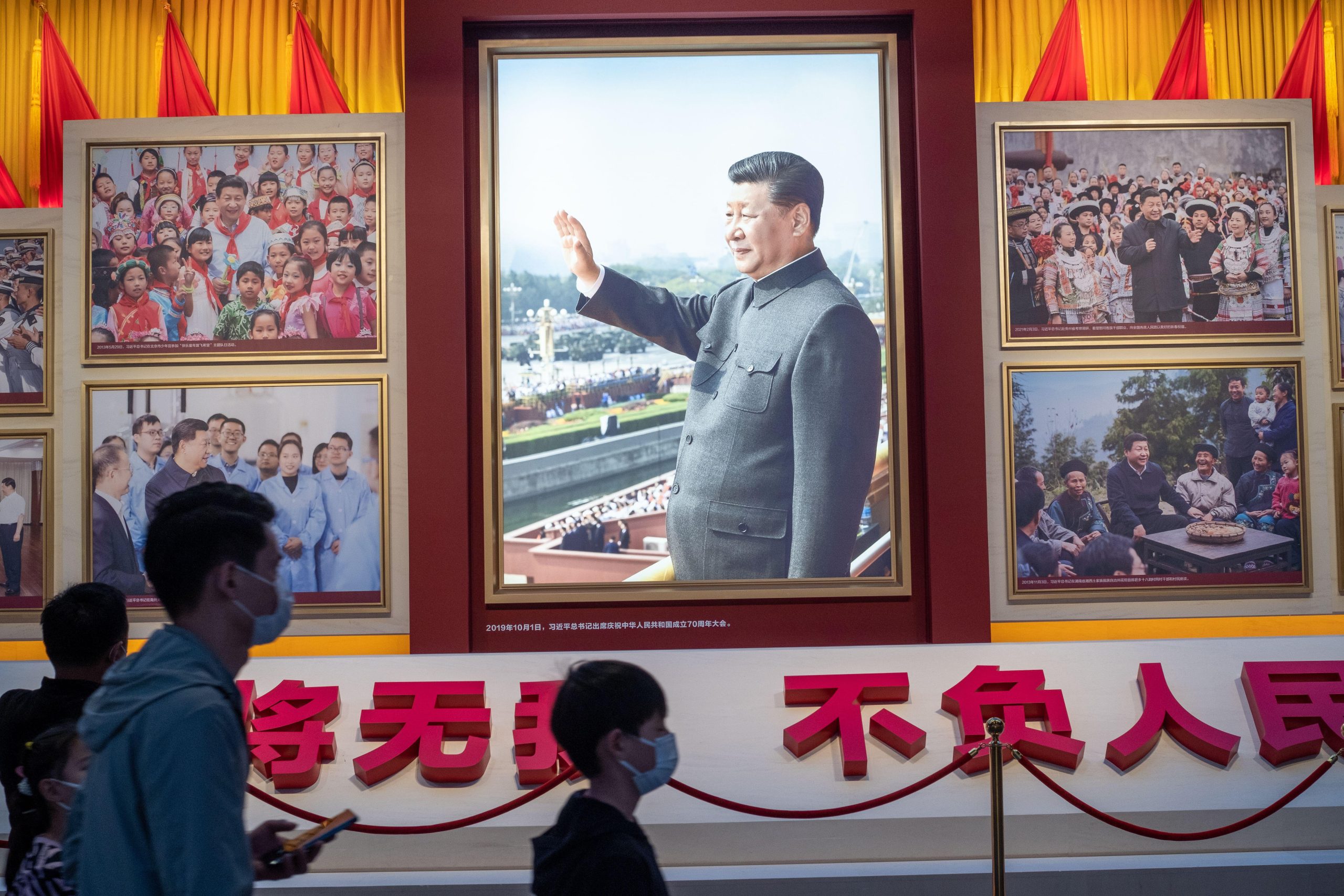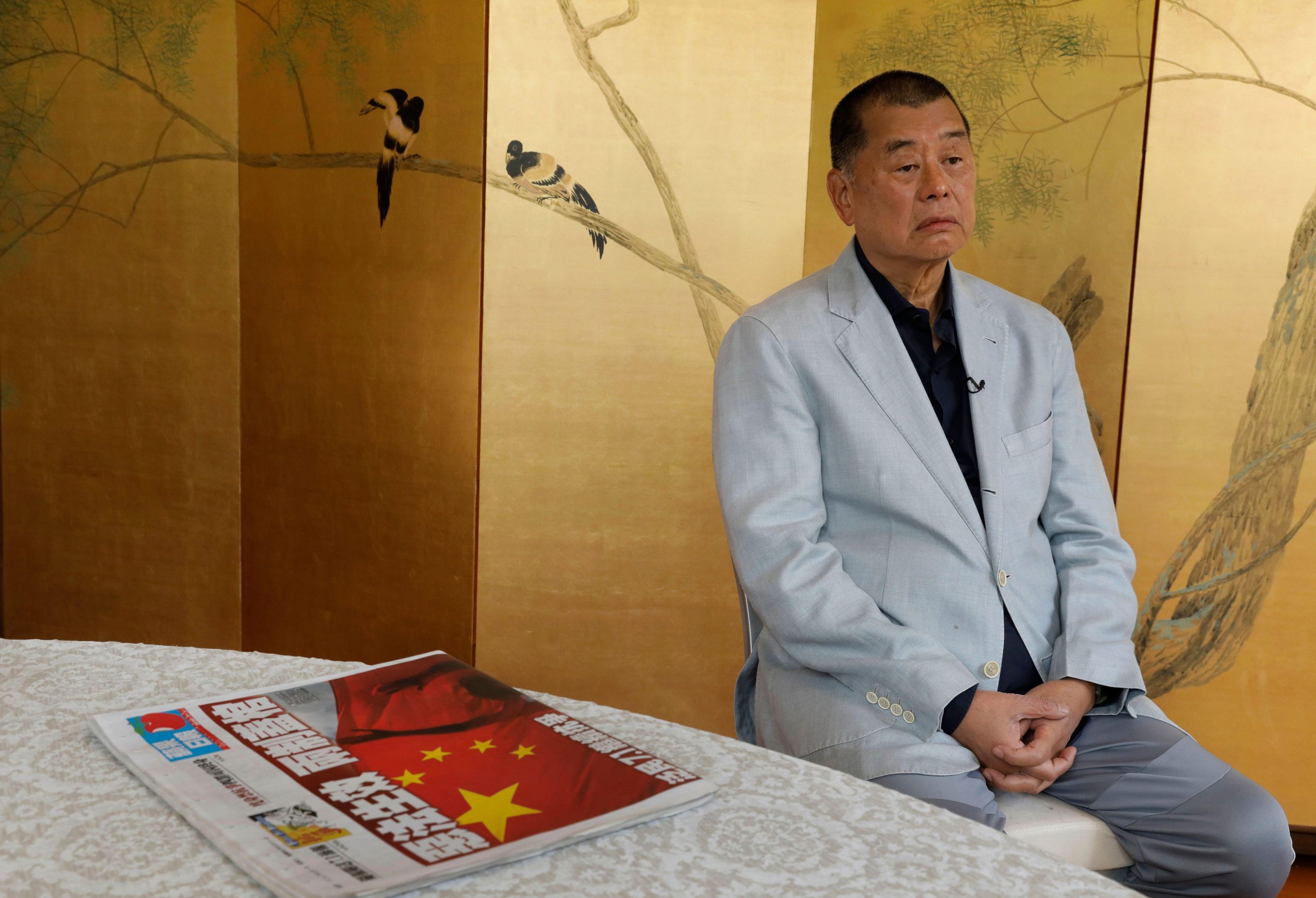We run this piece the week five spokespeople, who were due to give a press conference about protests against a ban on Palestine Action, were arrested by the Metropolitan Police on suspicion of encouraging support for a proscribed organisation
The right to protest is under unprecedented attack in the UK. I should know. l’ve been campaigning for 58 years and participated in more than 3,000 protests, witnessing first-hand the way protesters’ rights have been progressively eroded.
The recent restrictions are merely an escalation of repressive legislation that has long existed and has often been used to stifle peaceful protest.
In the 1990s, under the ancient “breach of the peace” statutes I was arrested simply for holding placards urging LGBT+ equality. The police said that such a “controversial” demand could cause a violent reaction by members of the public, so I had to be arrested to prevent the possibility of violence. In other words, I was held liable for the potential criminal behaviour of others.
The public order laws against behaviour likely to cause “harassment, alarm and distress” were introduced in 1986, supposedly to combat football hooliganism and violent street disorder. But they have since been used overwhelmingly to suppress peaceful protesters. I was arrested under this law in 1994 for publicly condemning the sexism, homophobia and antisemitism of the Islamist extremist group Hizb-u-Tahrir. The group called for the execution of LGBT people as well as women who have sex outside of marriage. No police action was taken against Hizb-u-Tahrir[1]. But when I cited and criticised what they said, I was arrested for behaviour likely to cause “harassment, alarm or distress.”
In recent years, the criminalisation of peaceful protesters has been further expanded to include mere disruption and nuisance. Disruption? Isn’t that one of the objectives of a protest? To disrupt business as usual. Nuisance? Most people would associate nuisance with a noisy dog or a late train. But a peaceful protest?
The new legislation has given the police a green light to crackdown even more harshly, as my two recent brushes with the law illustrate.
I was arrested at the Palestine solidarity protest in London, on 17 May 2025. The police claimed I had committed a ”racially and religiously aggravated breach of the peace” by marching with my placard: “STOP Israel genocide! STOP Hamas executions! Odai Al-Rubai, aged 22, executed by Hamas! RIP!”
The police claim is nonsense. My placard made no mention of anyone’s race or religion. Detained by the police for nearly six hours, I was finger-printed, DNA-sampled, photographed and denied the right to speak to a solicitor. The police have since admitted I was arrested in “error” but only after adverse publicity and my production of video evidence of the police’s behaviour. It was the 103rd time I have been detained or arrested by the police during my nearly six decades of campaigning – in all cases for peaceful protests.
A week later I was forcibly and unlawfully ejected by police from the Birmingham Pride parade. My crime? The police objected to me holding a placard that read: “West Midlands police refuse to apologise for anti-LGBT+ witch-hunts. SHAME! #ApologiseNow”
When I challenged the police’s bid to remove me from the parade, officers said the Pride organisers told them I was not authorised to be on the march and they had requested the police to remove me. That was a fabrication. I was wearing a march wristband. The Pride CEO approved me to march in the parade and has since confirmed that he never gave the police any instructions to remove me. It looks like police ejected me in revenge for my exposure of their refusal to say “sorry”.
What’s happened to me is small fry compared to government and police sledgehammer tactics against the climate campaigners like Just Stop Oil: sentences of three to five years jail for merely discussing motorway protests. Over two years in prison for climbing on the Dartford Crossing.
The crackdown on protest has culminated in the proscription of Palestine Action as a terrorist organisation. This draconian measure is what we expect in Putin’s Russia, not in Britain.
And it only gets worse. Over 500 people were arrested outside parliament on 9 August 2025 for holding placards “I oppose genocide. I support Palestine Action.” They were expressing their opposition to the designation of the organisation as a terrorist group and supporting its efforts to stop what they regard as Israel’s genocide. What kind of country have we become when freedom of expression is a crime?
Breaking the law to non-violently challenge injustice has an honourable tradition, as espoused by Martin Luther King and the US black civil rights movement in the 1960s.
It can be ethically justified in three circumstances: when governments ignore the wishes of the majority, break their election promises or violate human rights. If these principles clash, the protection of human rights should always trump majority opinion and election promises. No government has the right to oppress people or deny freedoms and, if it does, people have a right to resist with non-violent civil disobedience.
And that is what I have done on many occasions. Until the 1990s, there had been a long-standing ban on protests within a mile of parliament, under ancient “sessional orders.” Myself and members of the LGBT+ group OutRage! were determined to challenge this unjustified restriction on the right to protest. We were repeatedly arrested in the 1990s for “unlawfully” standing opposite the House of Commons with placards demanding the repeal of anti-LGBT+ laws. Our ethical law breaking, to assert the right to protest outside parliament, which had imposed these laws, eventually changed the way the law was interpreted and enforced, thereby allowing protests where they were once banned.
Critics say that breaking the law is never justified in a democracy because elections give people the option of changing the government. But Britain is not a fully formed democracy with a fair voting system. No political party has won a majority of the popular vote since 1931.
We’ve had decades of unrepresentative parliaments, and governments ruling with minority public support. Labour won only 34% of the vote in the 2024 general election but bagged 63% of the seats and 100% of the power. That is not democracy. Keir Starmer has no majority mandate for his crackdown on the right to protest.
* For more information about Peter Tatchell’s human rights work: www.PeterTatchellFoundation.org
[Editor’s note: After taking legal advice, Index removed a section of this article pertaining to Palestine Action, because of draconian terror legislation and the lack of a defence of free speech.]
[1] Hizb-u-Tahrir were proscribed in 2024 as a terrorist group

